Robbie Meredith
BBC News NI education and arts correspondent
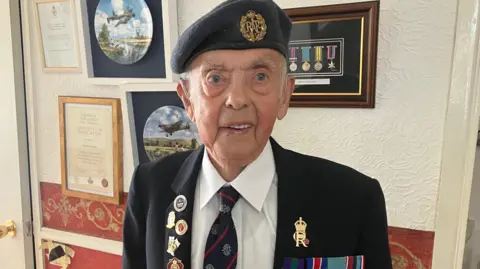 BBC
BBC
Tommy Doherty was stationed at RAF Aldergrove in 1945 before being deployed to Singapore
Victory over Japan Day – or VJ day – on 15 August marks the day in 1945 when World War Two ended.
Lisburn man Tommy Doherty may be 98 but he still remembers vividly serving in the RAF in Singapore during the war.
He was given only six hours notice to pack up to go to the other side of the world.
Meanwhile, Tommy’s neighbour Brian Buick’s uncle Joseph McCandless died in a prisoner of war camp in Borneo in 1945.
The two men often get together to talk about the war in Tommy’s home, in which his service medals and photographs are proudly displayed.
They also shared their memories with BBC News NI.
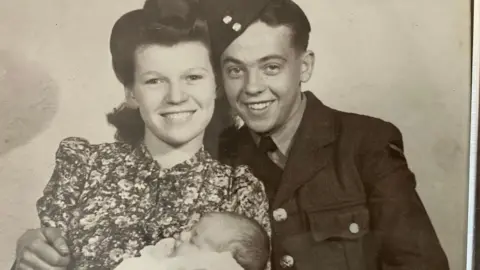 Tommy Doherty
Tommy Doherty
Tommy remembers he was given only six hours notice before having to leave his family
Tommy Doherty was stationed at RAF Aldergrove when he was spoken to by one of the lieutenants on the base.
“I’ve bad news for you,” Tommy remembered him saying.
“You have to report to Burtonwood (a former RAF base in the north of England) tomorrow at the latest.
“So I had to sail that night, with only six hours between the wife and I.”
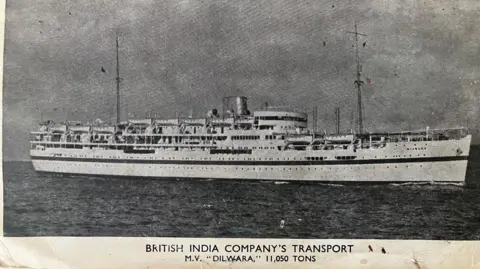 Tommy Doherty
Tommy Doherty
A photograph of the ship on which Tommy sailed to Sinagapore is among his wartime collection
The trip to Singapore took longer – “18 or 19 days” according to Tommy.
He worked in RAF camps in Singapore as a driver, “for a year, back and forward in different camps”.
Later he was transferred to Kuala Lumpur in what is now Malaysia, and then elsewhere in the country.
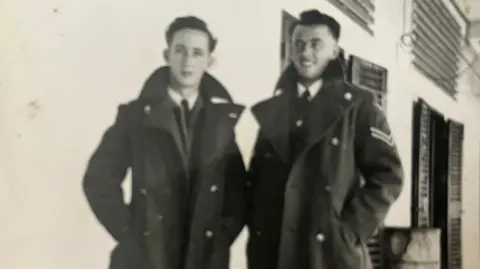 Tommy Doherty
Tommy Doherty
Tommy, pictures with a fellow serviceman, said it was frustrating how often they were moved around
But he told BBC News NI he became frustrated at times at how much he and his fellow servicemen were moved around.
And Tommy recalled talking to former prisoners of war who felt forgotten about, after the end of the conflict in Europe.
“The Germans are beat and the war is over there and the people are all dancing about and having beers and this, that and the other thing and they’ve left us just prisoners,” he remembers one telling him.
He also said that some of the soldiers captured by the Japanese were tortured.
While Tommy made it home, his neighbour Brian Buick’s uncle did not.

Brian Buick said his family have never been able to find out exactly how his uncle died
Brian Buick’s uncle Joseph McCandless was captured on the island of Java in 1942 and held in a prisoner of war camp in Borneo, where he died in 1945.
“I was probably too young at that stage to really comprehend an awful lot about Uncle Joe,” he said.
“It was only when I got older that I realised how tough and sad, really, that his life and his death ultimately had been.”
Joseph McCandless joined the RAF in 1938, and was posted to Singapore in 1941.
Japan captured Singapore in 1942, landing a major blow to the British war effort.
“Joe managed to escape to the island of Java, but the Japanese also invaded Java,” Brian Buick recalled.
‘As brutal as you can imagine’
“That’s where he was captured. He was a prisoner of war in Borneo for about three years.
“It was pretty brutal, probably as brutal as you can imagine. They were treated appallingly, not only the treatment they received but the diseases they encountered – dysentery and parasitic diseases.”
His uncle, Brian added, was in a “horrible place”.
He added: “Being so far from home, no contact with loved ones didn’t help any, they were basically starved.
“If disease didn’t get them the starvation probably did.”
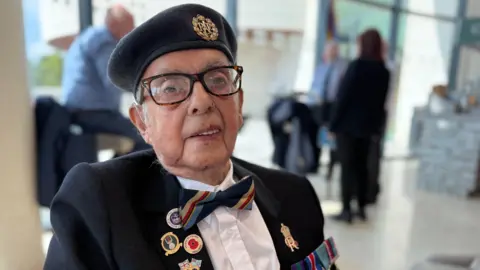
Tommy Doherty at the VJ day ceremony in Lisburn on Friday
Brian and his family have never been able to find out exactly how Joseph died, but tragically it was very close to the end of the war, possibly only a matter of days.
They have always remembered him, particularly on VJ Day.
Events are taking place across Northern Ireland to mark the day.
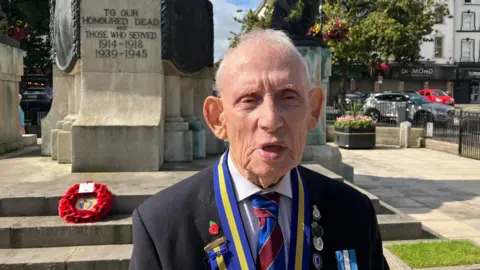
William Allen, from the Royal British Legion, says it’s important to remember all who paid the supreme sacrifice
William Allen, President of the Waterside branch of the Royal British Legion, in Londonderry said it was hugely important to remember all who paid the supreme sacrifice.
He said many young men had gone off to war and didn’t return home and it was right and fitting that their sacrifice was never forgotten.
He was speaking at the War Memorial in the Diamond where a small group attended the commemoration.

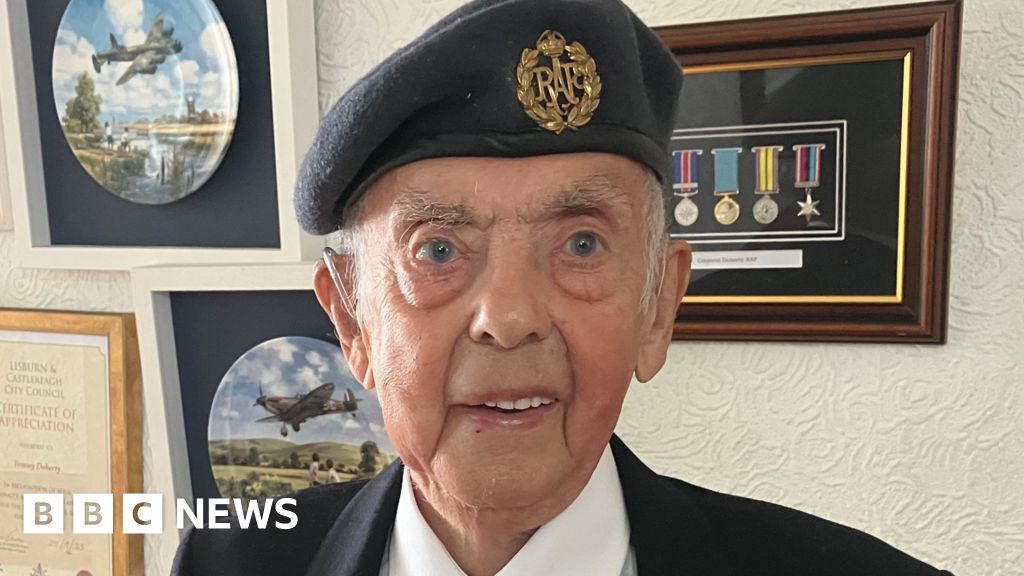

AloJapan.com